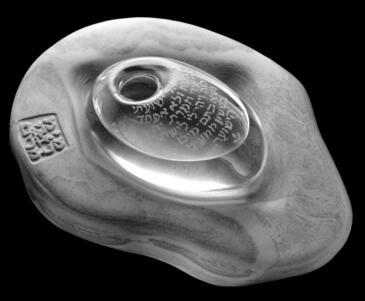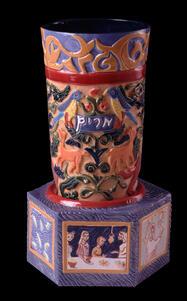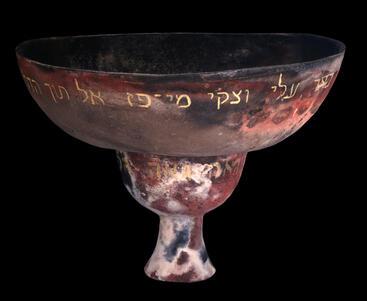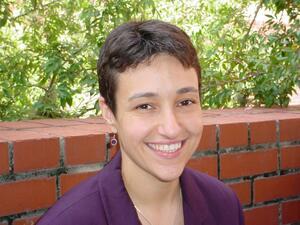Tamara Cohen
One of the key ways that Judaism continues to live and be lived throughout the world is through holiday celebrations and rituals. Knowing this and valuing the importance of ritual and practice, Ma’yan: The Jewish Women’s Project of the JCC in Manhattan devoted resources and much energy during its first ten years as a Jewish feminist organization (1994-2004) to bringing Jewish feminist practice into homes and synagogues throughout the United States and beyond.
I remember sitting at many meetings with the rest of the Ma’yan staff and various friends and co-conspirators, trying to figure out creative ways to translate into accessible and usable forms and objects the transformative effect that Jewish feminist thought had had on our lives. We wanted to bring Jewish feminism into mainstream synagogues and community centers and to help make it part of the vocabulary of Jewish teachers and families, sometimes without their even noticing. We didn’t want to let Jewish feminism be one “topic” or bookshelf in a Jewish library. Instead we knew that Jewish feminism needed to be suffused through all of Jewish practice so that it would be impossible to ignore. We also had the good sense to realize that by bringing together Jewish feminist thought with a perhaps more traditional form of Jewish women’s contribution to the home and community – the making of beautiful Judaica – we could help make Jewish feminism not just intellectually and spiritually fulfilling, but also aesthetically and sensually engaging.
In the case of Miriam’s Cups, Ma’yan did not invent the ritual object; we simply set out to bring it from the fringes into the mainstream. Born out of a meditation on the midrash of Miriam’s Well in a Rosh Hodesh group in a suburb of Boston, the idea of a ritual goblet filled with water which would symbolize the mythic healing waters of Miriam’s Well immediately struck the members of the group as something that "already existed and was just waiting to be discovered." In 1992, Lilith magazine began spreading news of the new ritual object more widely when it first commissioned a Miriam’s Cup. Then in 1998, Ma’yan invited 80 artists from around the world to participate in an exhibition and sale entitled "Drawing From the Source: Miriam, Women's Creativity and New Ritual." Artists were invited to make usable original Miriam’s Cups. Many, for whom the exhibition was their first discovery of the Miriam’s Well story and/or Jewish feminist ritual, have continued to produce Miriam’s Cups, which have become part of more and more seders and other rituals across the country and indeed the world.
Through Miriam’s Cups and many other ritual objects like them, Jewish feminism has brought new shape, color, sound, and experience to our seder tables, sukkot, and synagogue celebrations. As these objects grow older and more used, I delight to think that they will soon become family heirlooms, treasured symbols of Jewish tradition strengthened, enhanced, and transformed through feminist innovation.
Tamara Cohen is a Jewish feminist writer, activist and educator. She currently works as the Director of Lesbian, Gay, Bisexual and Transgender Affairs at the University of Florida and the once-a-month Spiritual Leader of the Greater Washington Connecticut Coalition for Jewish Life. In 2004, Cohen directed a national study of Jewish women and feminism for Ma’yan: The Jewish Women’s Project, a program of the JCC in Manhattan for whom she worked as Program Director for many years. While at Ma’yan, she worked in partnership with the Jewish Women's Archive to create the first Women of Valor posters. Cohen has also worked as an educator with Jewish women in the former Soviet Union through Project Kesher. She has served on the boards of Joshua Venture, Brit Tzedek V’Shalom, and Jews for Racial and Economic Justice. She is the editor of the Ma’yan feminist Haggadah, The Journey Continues, as well as an author of numerous articles and poems on Jewish women’s spirituality and feminist approaches to text. Cohen holds a M.A. in Women’s History from Sarah Lawrence College and a B.A. in Women’s Studies and English from Barnard College. She currently lives in Gainesville, Florida, with her partner, Gwynn Kessler.







Well done Tamara for your Professionalism and your work 👏 outside your job im a Roman Catholic and it's so important too 👍 hold onto too your Roots and Have a Lovely Day 😍 Shalom and God Bless and Keep Safe